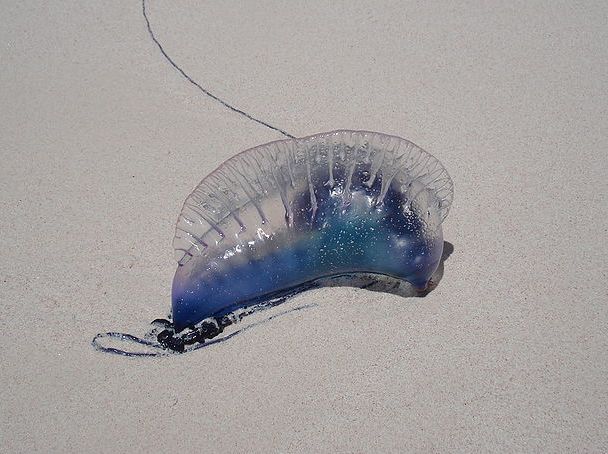Sting! Portuguese Man-of-War Warning Issued
The Department of Parks today issued a warning to the general public that Portuguese Man-of-Wars are washing up on Bermuda’s beaches in larger numbers. The sea creatures are infamous for their painful stings.
The Department advises that Portuguese Man-of-War tentacles that have washed up on the beach are still capable of stinging for a period of time and they should be avoided to prevent injury. Swimmers are advised to use extreme care while swimming to avoid coming in contact with Man-of-War.
If stung, the Department advises people to do the following:
- Rinse with salt water and remove any visible tentacles from the skin (Do not use unprotected fingers/hands. Use a stick, gloved hand, towel, etc.).
- Treat the affected areas with vinegar.
- Apply warm water/warm compress.
- Remove any of the remaining tentacles by applying shaving cream with something like a tongue depressor stick or a credit card.
- Finally treatment may consist of the application of 1% hydrocortisone cream to the affected area. Please seek medical advice prior to use/application of this medication.
- Altered level of consciousness or difficulty with breathing warrants immediate medical attention- call 911
The Portuguese Man o’ War lives at the surface of the ocean, with its float above the water, serving as a sail, and the rest of the organism hanging below the surface. It has no means of propulsion, and is moved by a combination of winds, currents, and tides.
According to National Geographic, the man-o-war’s tentacles can extend 165 feet in length below the surface, although 30 feet is more the average. They are covered in venom-filled nematocysts used to paralyze and kill fish and other small creatures.
The video below on the Portuguese Man of War is from National Geographic:
Read More About
Category: All, Environment, News


